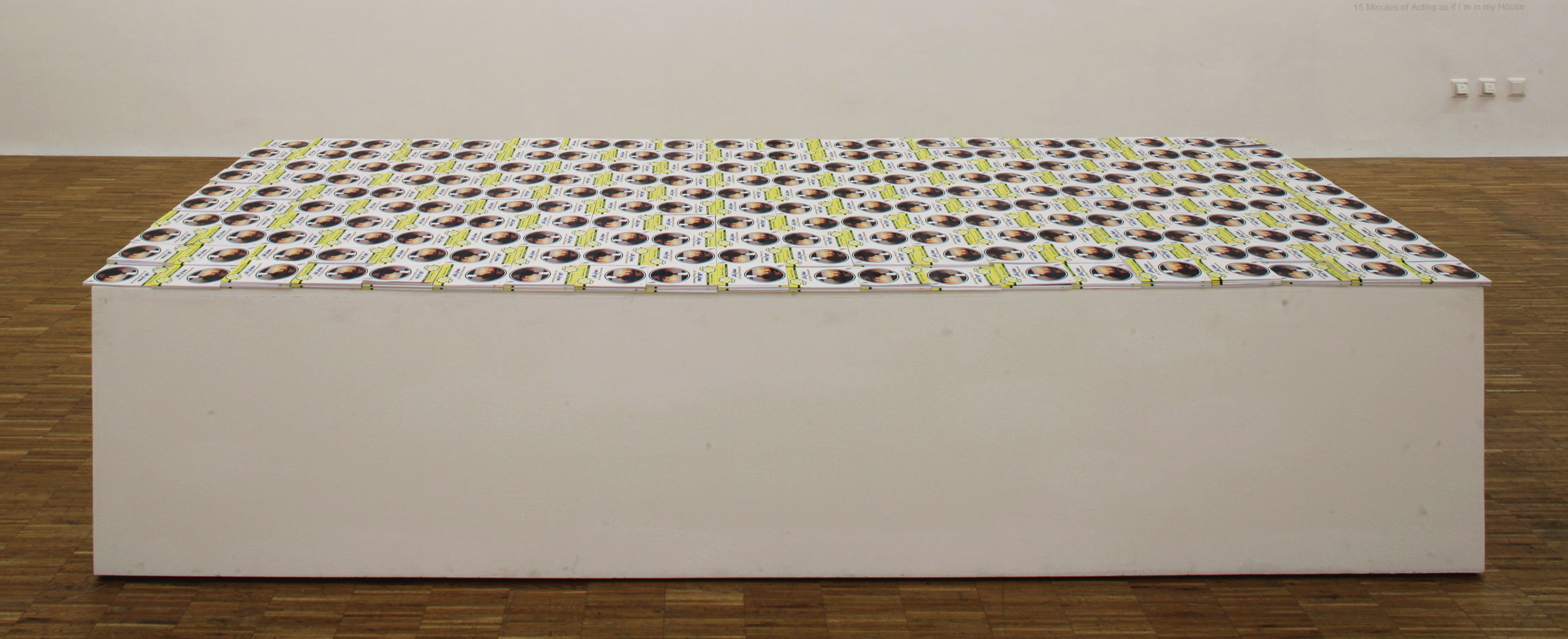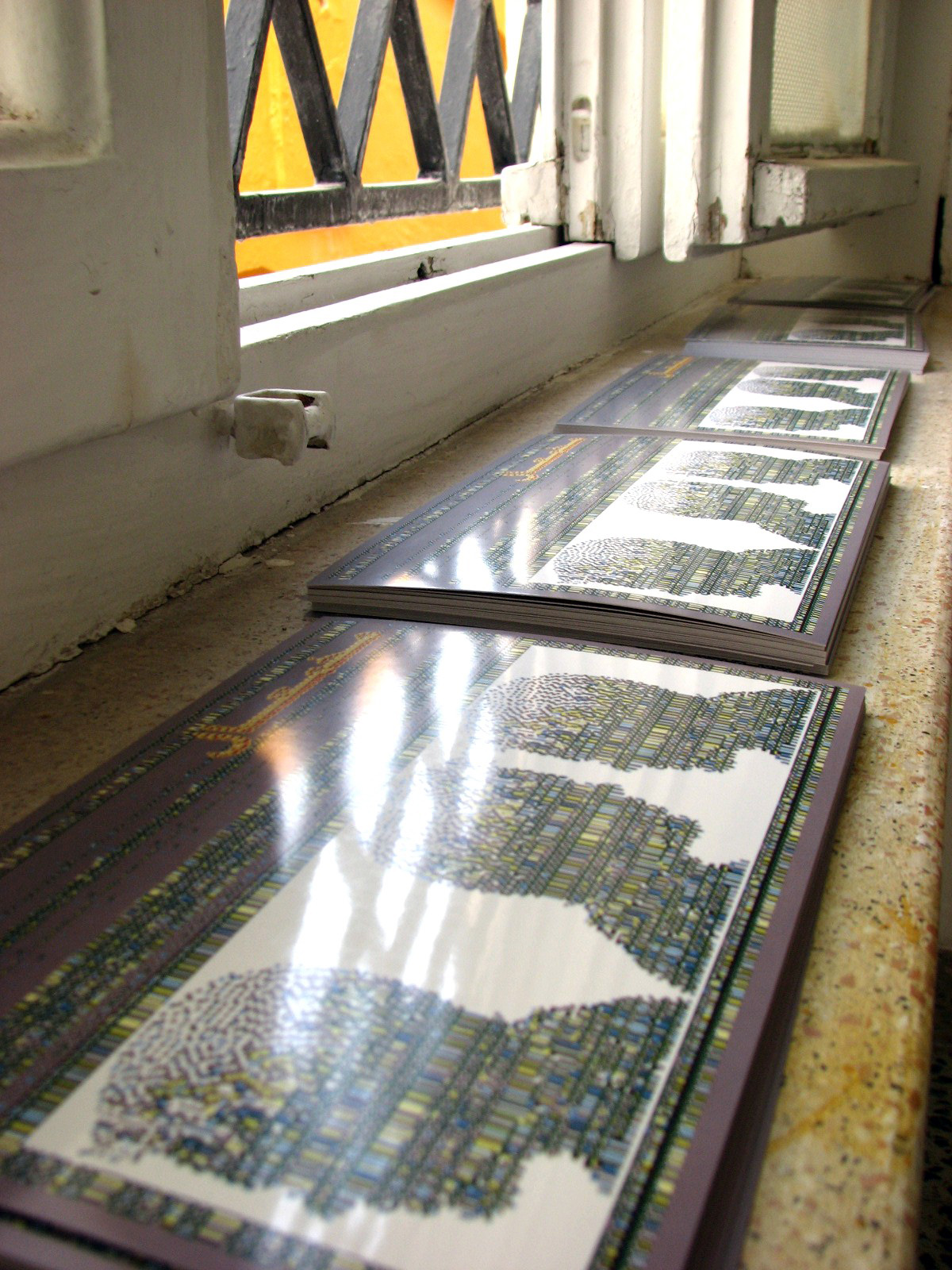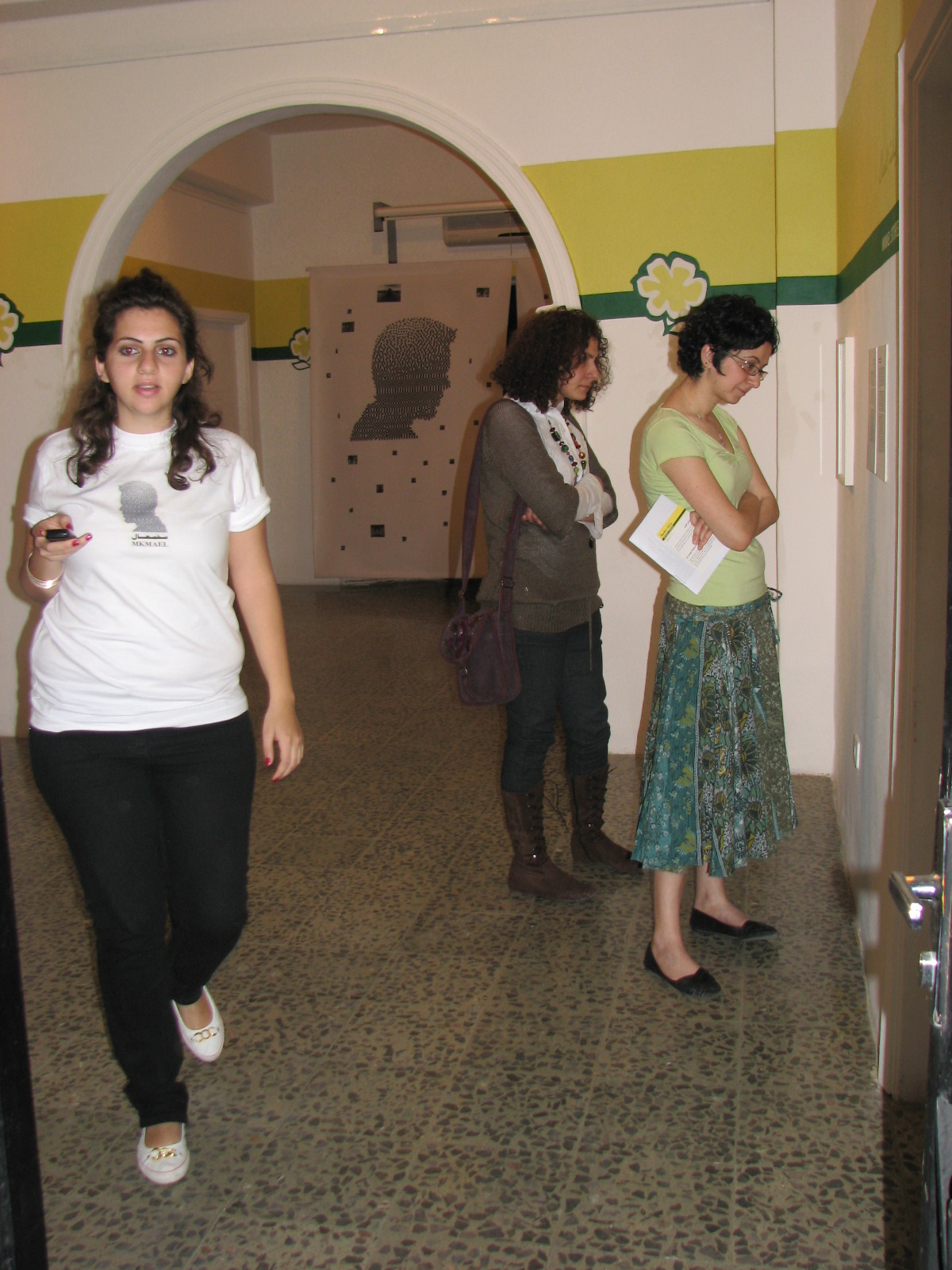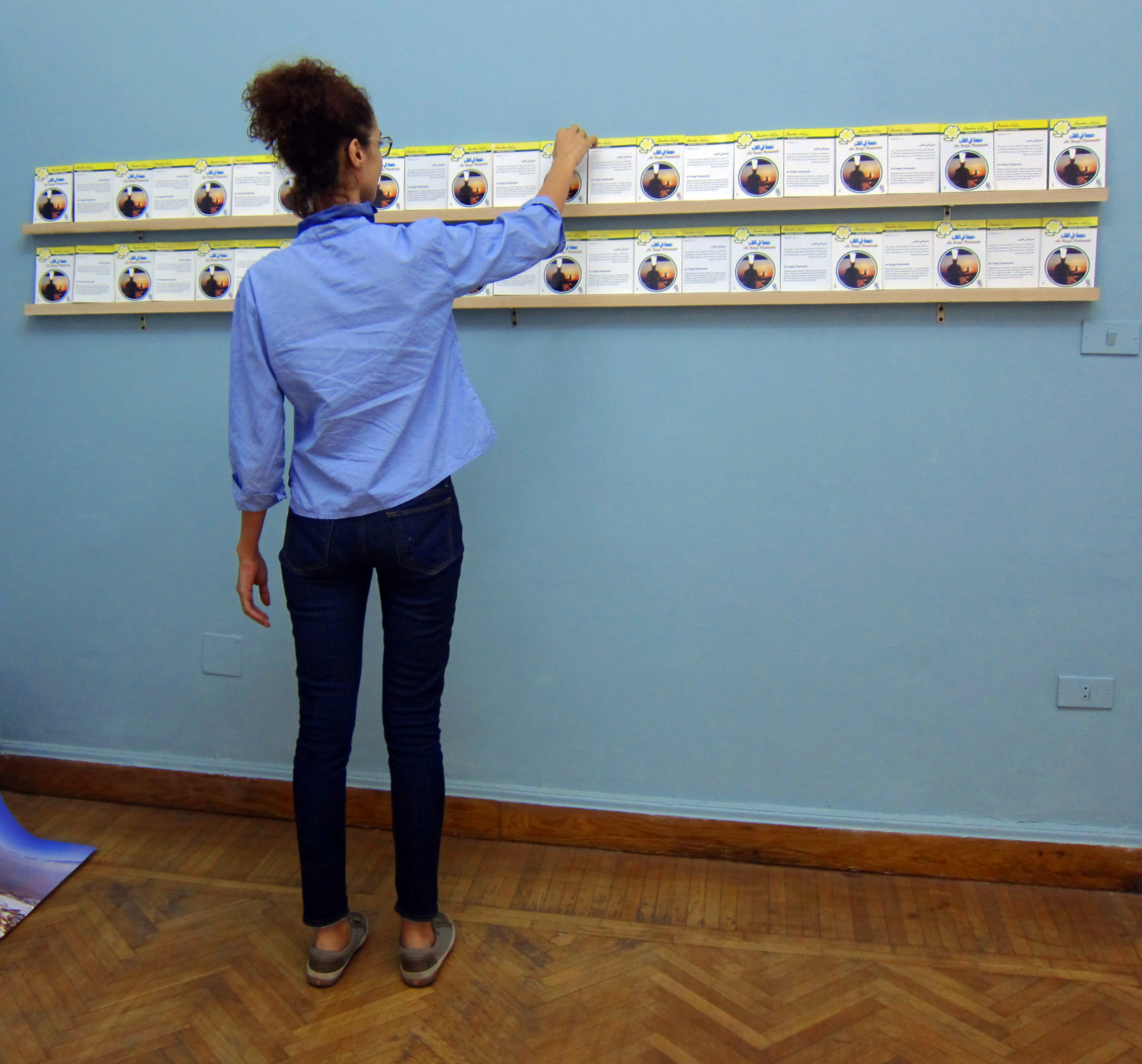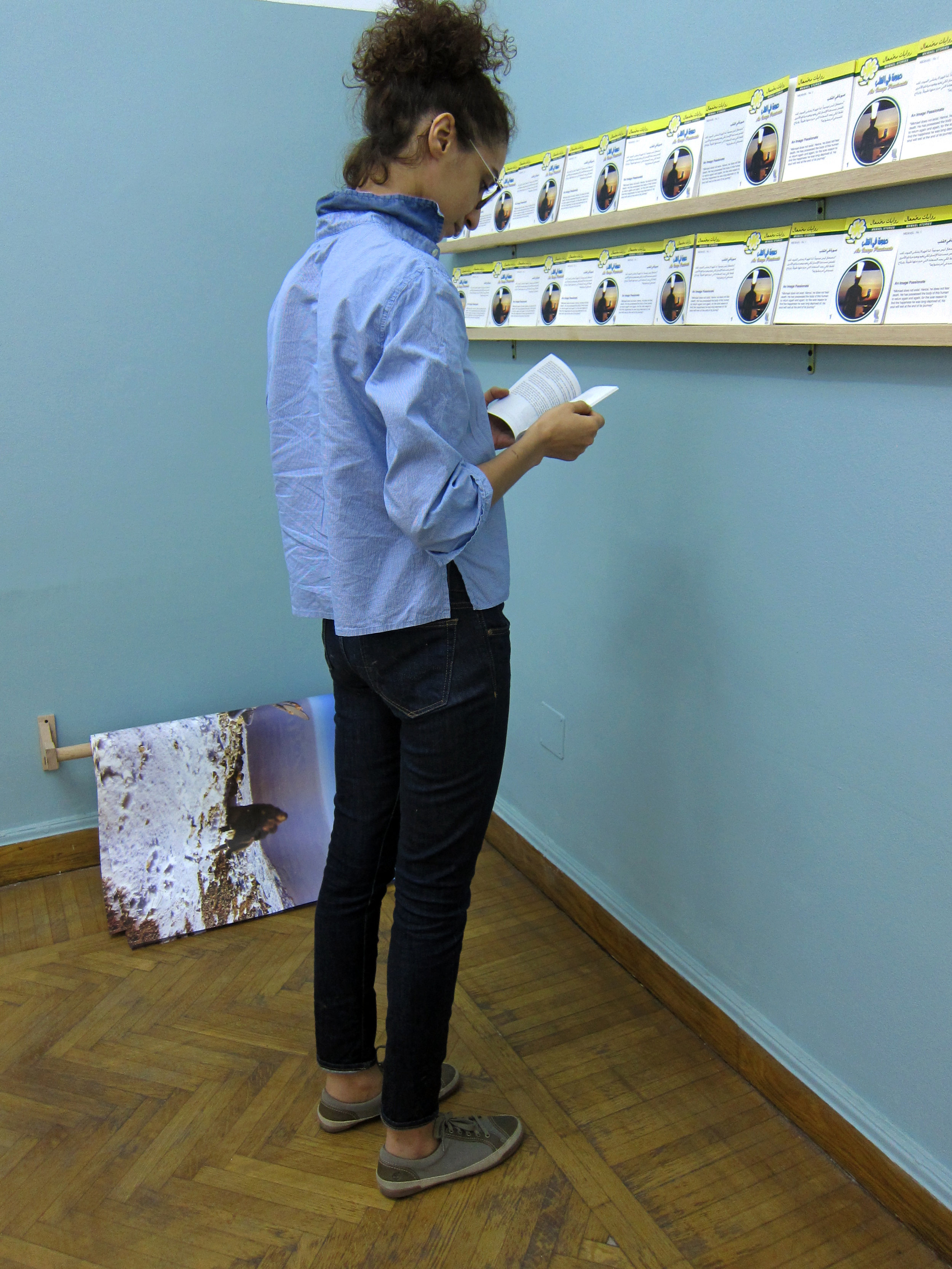"MKMAEL Stories - an Image Passionate is the sole result of the artist’s now discontinued online research project MKMAEL (2003-2005). MKMAEL was the nickname the artist used as a login for the instant messaging system from which he communicated and shared conversations with male contacts from around the region. The letters that make up this online nickname are the first letters of the artist's full name as featured on his state-issued identity card. The MKMAEL project was a discursive attempt at exploring the psychological and sociopolitical aspects of sexual identity construction and reconstruction during online chatting. The artist began the project with the intention of keeping it purely text-based, but gradually discovered that the introduction of specially designed avatars added to one-on-one dialogues the compelling power of the image and the almost infinite possibilities of self-representation. The driving force behind the long hours of instant messaging is, in the artist’s words, "a pressing need to create documents, eventually leading to the creation of an archive that seriously represents and disambiguates this type of relationship and interactivity."
The MKMAEL project was groundbreaking, not in a sensational sense and not in the sense that it was a project of perfection, complete or even entertaining, but in the sense that it was the probably the first visual art project in the country’s history that managed to negotiate a presence for gay issues and questions - in relation to a wider socio-political context. Sometimes a little over ambiguous, the dialogues attest to the online reciprocation of lies, hidden desires, twisted social logic, and feelings of alienation among MKMAEL and his "buddy list." MKMAEL delineated the boundaries between interaction in physical space and interaction through electronic interfaces in an attempt to demonstrate the inscrutable nature of reality in these online environments.
MKMAEL Stories - an Image Passionate has at its core a tactical reinterpretation of Egypt’s once astoundingly popular line of romance fiction pocket paperbacks “Abeer”. In this book, the artist blurs fact retrieved from the chat archive with fictionist narration to create a frustrating recipe for a gay romance story written in the digital age. Many of “Abeer’s” traits have been kept alive by the artist, the idea of the super-romance that is almost too intense thus becoming a little melodramatic, the intrigue, and the unspoken desire. The cover is a take on the original “Abeer” book covers, but the cover illustration does not feature a man and a woman in a close-up shot as usual, but a rather dark icon of lone masculinity where a silhouetted male figure stands facing a sunset horizon with a can of soda in one hand, wearing a rather funny hat. What are we to make of this image? Is it the passionate image the narrator is referring to in the title? The only way the audience can attempt to find out is by actually reading this short story, but don’t expect all the answers to your questions to be revealed, this project is not about revealing but about how art can negotiate the right of certain identities, orientations, and desires to exist."
Bassam El Baroni, 2013
Salzburger Kunstverein, Salzburg, Austria - MKMAEL Stories - An Image Passionate, 2007 -
Makan, Amman, Jordan - MKMAEL Stories – An Image Passionate, 2008 -
Nile Sunset Annex, Cairo, Egypt - MKMAEL Stories – An Image Passionate, 2013.
” MKMAEL has just joined the room” - Mahmoud Khaled's alias logs in to explore controversial terrain
by Bassam El Baroni,
(work in Progress series) Bidoun Magazine, issue 9. 2006
In a popular TV commercial for Nokia, actor Gary Oldman proclaims with a blazing casualness that "all the world's a stage, and all the men and women merely players." Indeed. In an ever-expanding world of wireless communication, internet addiction, and online communities, the Shakespearian quote resonates in many more ways than it used to.
MKMAEL is the title of Mahmoud Khaled's ongoing, process-oriented art project, launched towards the end of 2004. The stage this young artist from Alexandria has chosen is the intangible platform of the world wide web. MKMAEL is also the nickname Khaled uses as a login for the instant messaging system from which he communicates and shares conversations with male contacts from the Middle East. The letters that make up this nickname are the first letters of the artist's full name as featured on his Egyptian state identity card.
The many taboos and long-held assumptions surrounding sexual orientation and sexual identity in the Middle East have helped to create an artistic climate in which same-sex relationships and gayness are most usually referred to through the filters of self-censorship, metaphors, and other coded forms. The MKMAEL project is a discursive attempt at exploring the psychological and sociopolitical aspects of sexual identity construction and reconstruction in chatrooms. When eventually presented to the public, MKMAEL promises to be one of the first art projects emerging from the region to discuss issues pertaining to the psychology of cyberspace and cyber-relationships in the Middle East.
Over the span of the last two years, the part-fictional character MKMAEL has had both short-term and long-term online relationships, although to preserve his anonymity and to remain as emotionally uninvolved as possible, he never uses a microphone, real pictures of himself, or a webcam-and, of course, he never shows up on real dates. Khaled began the project with the intention of keeping it purely text-based, but gradually discovered that the introduction of specially designed avatars added to one-on-one dialogues the compelling power of the image and the almost infinite possibilities of self-representation. The driving force behind the endless hours of instant messaging is, as Khaled puts it, "a pressing need to create documents, eventually leading to the creation of an archive that seriously represents and disambiguates this type of relationship and interactivity."
The dialogues attest to the online reciprocation of lies, hidden desires, twisted social logic, and feelings of alienation among MKMAEL and his "buddy list." MKMAEL delineates the boundaries between interaction in physical space and interaction through electronic interfaces in an attempt to demonstrate the inscrutable nature of reality in these rooms without walls.
It is in chatrooms that we find definite symptoms of the topsy-turvy world Debord foresaw in The Society of the Spectacle, a world where "the true is a moment of the false." Throughout endless streams of text, Khaled plays a multitude of roles. For his fellow chatters, he is MKMAEL, a trans-local character with whom they can make conversation; for us he's a cyber-situationist and contextualizing social agitator.
The MKMAEL archive is nearing completion, and Khaled has his ambitions set on premiering the project in the second half of 2007. "The installation," as the artist describes it, will feature a structural presentation of the MKMAEL dialogues as process, document, and visual representation. Anticipating its public unveiling, one wonders whether MKMAEL will be food for controversy or food for thought, hoping that the latter will be the case.








